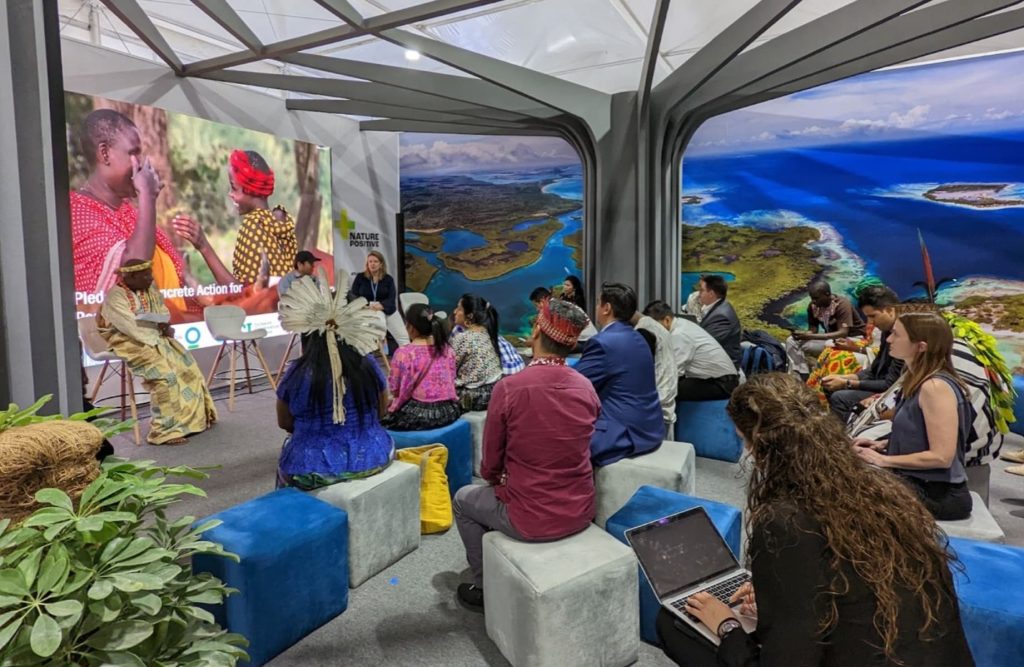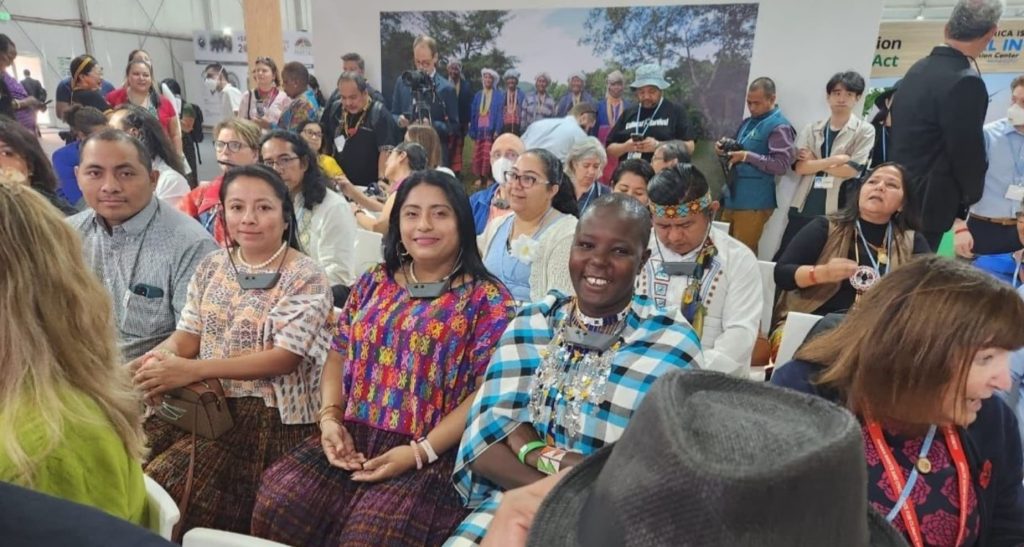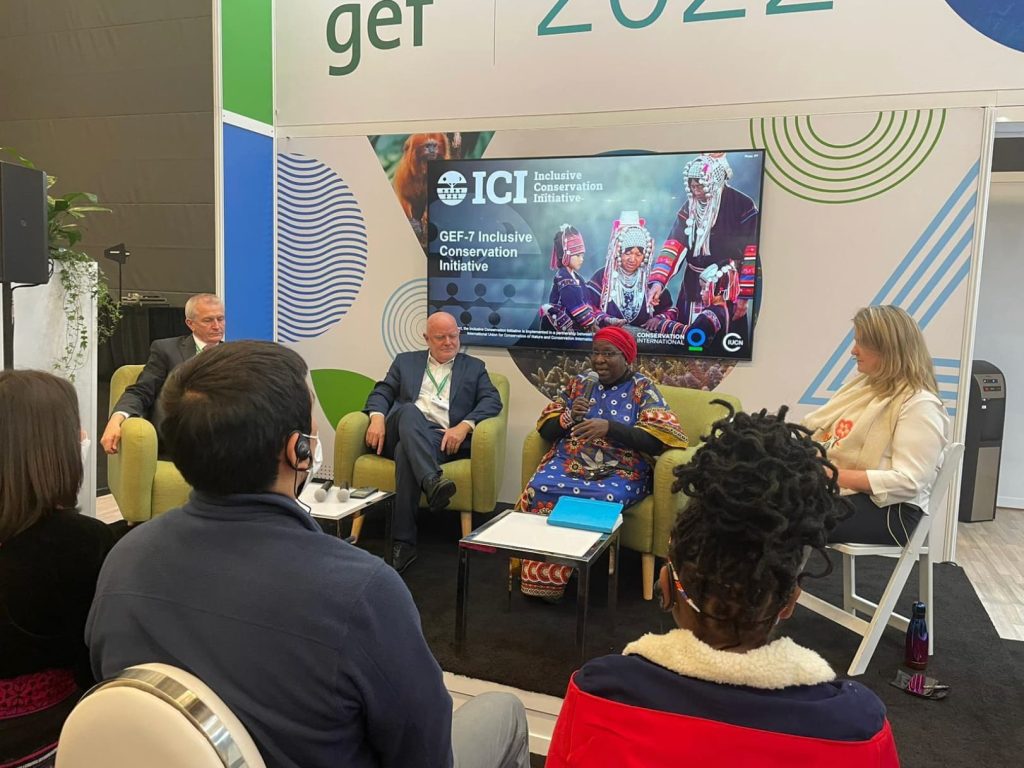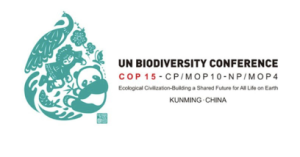Indigenous leaders working on initiatives within ICI continued to amplify traditional knowledge and IP and LC territorial rights at the upcoming UNFCCC COP 28, hosted in Dubai, United Arab Emirates, particularly as they relate to the Global Stocktake and how its outcomes may inform a strong rights-based approach to the L&D Facility.
International environmental policy spaces are key arenas for setting directions and establishing commitments that create either enabling or constraining conditions for Indigenous People and Local Community (IP and LC)-led conservation. IP and LC voices in decision-making at the Rio Conventions and other relevant fora to strengthen their provisions on IP and LC rights and roles in relation to conservation, climate change and other environmental issues.
Though policy progress is happening, many decision-making processes at national, regional, and global levels continue to lack sufficient pathways for the full, effective, and meaningful participation and engagement of Indigenous Peoples and Local Communities (IPs and LCs). Social, political, cultural, language, and financial obstacles exacerbate barriers to participation, as many systems do not include IP or LC perspectives as requisite voices towards decision-making. It is essential that historical discrimination, exclusion, and power imbalances are addressed – otherwise opportunities to advance social justice and equity will flounder while continuing to drive environmental loss.
Through IP and LC leadership, ICI seeks strategic opportunities to help systematize and strengthen IP and LC representation and engagement in environmental policy fora, based on targeted representation with clear policy objectives, added value to existing initiatives, and defined communication goals.
Global Biodiversity Framework Through Working with Indigenous People and Local Communities (PDF)
[English] | [French] | [Spanish]
Events
UNFCCC COP 28
November 30 – December 12, 2023
CBD SBSTTA 25
October 15-19, 2023
Ongoing engagement of IP and LC voices in technical meetings of the CBD will be an important part of the work moving forward with specific focus on SBSTTA, Article 8J, Target 3 and resource mobilization.
7th GEF Assembly 2023
August 22-26, 2023
Sharing ICI experiences to-date, the ICI Global Steering Committee attended the 7th GEF that took place August 22-26 in Vancouver, Canada and advocated for more direct IP and LC financing, including through the establishment of the new Global Biodiversity Framework Fund.
International Environmental Policy Fellows Program
ICI will also start up the ICI International Environmental Policy Fellows Program which will recruit 15 IP and LC participants to focus on building the next generation of female and male leaders in IP and LC policy advocacy. The Fellowship will include concrete deliverables such as participation in ICI’s Learning Academy training and global networks, reporting on community projects and policy engagement, and contributions to advocacy.
Past Achievements


UN Framework Convention on Climate
Change Conference of the Parties 27
In 2022, ICI began its global engagement via the UN Framework Convention on Climate Change (UNFCCC) Conference of the Parties (COP) 27 in Sharm-el-Sheik, Egypt, and the Kunming-Montreal UN Convention on Biological Diversity (UNCBD) COP 15. Each forum was crucial for raising awareness about ICI and to influence global climate and biodiversity policy decisions.
During UNFCCC COP 27, ICI supported and hosted over 10 events that uplifted Indigenous leadership in advancing nature-based solutions that are meaningful, harness the experience of IPs and LCs, and do not present false solutions or a reliance on monetizing climate mitigation. Indigenous ICI leaders called for progress and accountability on the COP 26 pledge of USD$ 1.7 billion in funding to IPs and LCs – of which an estimated 7% had reached them from 2021 to 2022 – and called for increased scaled investments into inclusive finance mechanisms such as ICI and to make progress on facilitating direct climate and conservation financing to IPs and LCs.

Amplifying Indigenous Women’s
Voices and Priorities
Indigenous women are powerful advocates for Mother Nature and are often at the forefront of climate action in their communities but are not guaranteed effective and full participation in international decision-making on climate. Recent studies show that of climate funds intended for Indigenous Peoples and Local Communities, only 17% reaches them – and Indigenous women are the most left behind, receiving 5% of funding (Grist, 2022). IUCN launched the Indigenous Women’s Insights – Stewarding the Earth initiative in 2021 as a communications campaign designed to advance the visibility of IPO messages in global conservation policy. In 2022, IUCN adapted the campaign to support Indigenous women and girls’ climate-leadership and reduce barriers to their full participation by supporting six Indigenous women leaders, three mentors and three mentees – including from the ICI subprojects at UNFCCC COP 27 in Sharm-el-Sheik.


In December 2022, the globe gathered in Montreal for the Kunming Biodiversity Conference (CBD COP 15) to decide upon the final text of the Global Biodiversity Framework (GBF). ICI leaders from Chile, DR Congo, Kenya, Panama, and Tanzania engaged in dialogues to make the case for an inclusive GBF that incorporates a human-rights based approach to conservation to ensure agreements and targets adequately consider the ways policies can unfold in reality.
From sharing how exclusionary protected area practices can affect Indigenous rights and livelihoods and result in forced removals of Indigenous Peoples, to sharing how hydroelectric dams can negatively impact Indigenous communities, ICI leaders emphasized that a human-rights based approach to global 30×30 targets requires the inclusion of IPs and LCs, and not their exclusion or expulsion.
Leaders also advocated for traditional knowledge as a foundation of inclusive conservation as a part of the GBF, and urged the GBF to ensure human-rights approaches are integrated into its financing. Together, they called on policymakers to reimagine how finance and the ways in which conservation results are measured contribute to the upholding and advancement of IP and LC rights, working with diverse stakeholders from across global policy, finance mechanisms, the private sector, and others to lay out a roadmap for translating pledges, commitments, and human rights integration into the GBF. In Montreal, Indigenous leaders also collaborated with the GEF to officially launch ICI in the global arena, inviting other funders to adapt or innovate models for increased inclusive or direct financing to IPs and LCs to tackle the concurrent climate and biodiversity crises.
